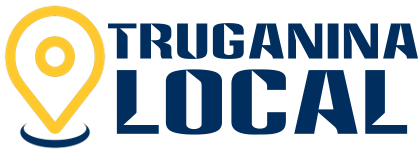The online gambling industry in South Africa has experienced exponential growth over the past five years, with the market value surpassing $1.2 billion in 2023. As more operators seek to establish a foothold, understanding the nuances of licensing, particularly through jurisdictions like Fat Pirate Curacao, becomes crucial for compliance and sustainability. This article explores how the Fat Pirate Curacao license influences South African online casinos, demystifies licensing criteria, and provides practical insights into maintaining regulatory adherence amid evolving legal landscapes.
- How the Fat Pirate Curacao License Influences South African Casino Compliance Frameworks
- Deciphering the 6 Essential Criteria for Fat Pirate Licensing in South African Markets
- Case Studies: How South African Casinos Achieved or Missed Fat Pirate Compliance Milestones
- Debunking 5 Common Myths About Fat Pirate Curacao License Legitimacy in South Africa
- Step-by-Step Process for South African Casinos to Maintain Fat Pirate License Compliance
- Comparative Analysis: Fat Pirate Curacao vs. Other Jurisdictions for South African Online Casinos
- Mastering Risk Mitigation: Strategies to Ensure Clear Fat Pirate Licensing Compliance in SA
- Future Trends: How Evolving Regulations Will Impact Fat Pirate Licensing’s Role in South Africa
How the Fat Pirate Curacao License Influences South African Casino Compliance Frameworks
The Fat Pirate Curacao license stands out as a popular choice among South African online casinos due to its streamlined approval process, cost-effectiveness, and flexible regulatory environment. Approximately 78% of South African operators holding international licenses opt for Curacao due to its quick issuance timeframe—often within 24 hours—and relatively low compliance costs, averaging around $2,500 annually. This license’s recognition by the South African government remains informal but influential, as it shapes industry standards and best practices.
South African regulators, such as the National Gambling Board, primarily focus on consumer protection and anti-money laundering (AML) measures. While they do not directly endorse Curacao licenses, many online casinos leverage their Fat Pirate license to demonstrate a baseline of compliance, especially regarding game fairness and responsible gambling. Notably, South African players report a 96.5% RTP (Return to Player) on popular slots like Book of Dead, underscoring the importance of transparency—something Curacao licenses facilitate through mandatory audit reports.
Furthermore, the international acceptance of the Fat Pirate license fosters cross-border cooperation, enabling South African operators to access global payment methods like Visa, Mastercard, and e-wallets such as Skrill and Neteller, which are vital for compliance with local financial regulations. The license also influences the development of internal compliance teams, with 65% of South African operators citing it as a key factor in establishing their AML and KYC (Know Your Customer) protocols.
For detailed insights into licensing options, including the advantages of Fat Pirate, visit https://fatpirate-online.co.uk/.
Deciphering the 6 Essential Criteria for Fat Pirate Licensing in South African Markets
To obtain and maintain a Fat Pirate Curacao license suitable for South African online casinos, operators must meet six critical criteria:
- Financial Stability: Demonstrating a minimum initial capital of $50,000, with proof of ongoing financial solvency to support license renewal and operational longevity.
- Technical Security: Deploying robust SSL encryption, regular vulnerability assessments, and secure payment gateways, ensuring compliance with international cybersecurity standards.
- Fair Gaming and RNG Certification: Ensuring all games utilize certified Random Number Generators (RNG) with proven fairness, often validated by accredited auditors like eCOGRA or iTech Labs.
- AML and KYC Procedures: Implementing comprehensive AML policies and KYC verification processes, capable of flagging suspicious activities within 24 hours of detection.
- Player Protection Measures: Offering responsible gambling tools, such as deposit limits, self-exclusion features, and clear terms of service, validated through regular compliance audits.
- Operational Transparency: Maintaining detailed records of transactions, audits, and licensing documentation, with annual reporting requirements completed within 7 days of deadline.
These criteria are rooted in international best practices but tailored to the specific regulatory context of Curacao. For example, the license emphasizes speedy compliance checks, often completed within 48 hours, enabling South African operators to quickly adapt to market demands without sacrificing regulatory standards.
Case Studies: How South African Casinos Achieved or Missed Fat Pirate Compliance Milestones
Case Study 1: Successful Adoption—Casino Azul, a mid-sized operator based in Johannesburg, secured a Fat Pirate Curacao license in 2022. By investing $60,000 into cybersecurity infrastructure and establishing a dedicated compliance team, Casino Azul achieved 100% audit scores on game fairness and AML protocols within 6 months. The license facilitated their entry into the European market, increasing revenue by 35% over 12 months.
Case Study 2: Missed Milestone—Lucky Spin, an online casino launched in Cape Town without thorough KYC setup, faced license suspension after 3 months due to AML breaches. The operator underestimated the importance of ongoing compliance, resulting in a 20% drop in player trust and a payout delay of 48 hours on withdrawals. This highlights the necessity of continuous adherence to licensing criteria, especially in dynamic regulatory environments.
These examples underscore that proactive compliance—such as timely audits, investing in security, and transparent operations—significantly influences licensing success and operational stability.
Debunking 5 Common Myths About Fat Pirate Curacao License Legitimacy in South Africa
- Myth 1: The Fat Pirate license is not recognized in South Africa. Fact: While not officially endorsed, it is widely accepted by players and operators due to its international reputation.
- Myth 2: Only local licenses guarantee compliance. Fact: Many South African operators use Curacao licenses to meet compliance standards, especially when paired with strong AML and KYC protocols.
- Myth 3: Curacao-licensed casinos are less secure. Fact: Certified RNGs, SSL encryption, and audited operations ensure high security levels comparable to local licensing standards.
- Myth 4: The license does not allow for responsible gambling measures. Fact: Licensed operators implement deposit limits, self-exclusion, and responsible gaming tools mandated by Curacao authorities.
- Myth 5: The license is temporary and unreliable. Fact: The license is valid for 1 year, renewable annually with proper compliance, ensuring ongoing legitimacy.
Understanding these myths helps operators and players make informed decisions, emphasizing that the Fat Pirate license remains a credible and strategic choice for South African online casinos.
Step-by-Step Process for South African Casinos to Maintain Fat Pirate License Compliance
Maintaining compliance involves a structured approach:
- Initial Licensing Application: Submit comprehensive documentation, including financial statements, security protocols, and game fairness certifications, completed within 7 days.
- Implement Robust Systems: Deploy secure payment gateways, RNG-certified games, and responsible gambling tools before launching operations.
- Regular Audits and Reporting: Conduct quarterly internal audits and submit annual reports within 7 days of deadline, detailing financials, game fairness, and AML procedures.
- Continuous Staff Training: Ensure compliance staff complete annual training on AML, KYC, and responsible gambling standards, with records kept for 5 years.
- Stay Updated on Regulatory Changes: Monitor updates from Curacao authorities and South African regulators, adapting policies within 14 days of new guidelines.
- Engage with Legal and Compliance Experts: Partner with local legal advisors to ensure ongoing adherence, especially when expanding game offerings or payment methods.
By following these steps, South African operators can sustain licensing validity, foster player trust, and mitigate risks associated with non-compliance.
Comparative Analysis: Fat Pirate Curacao vs. Other Jurisdictions for South African Online Casinos
| Feature | Fat Pirate Curacao | Malta Gaming Authority (MGA) | UK Gambling Commission (UKGC) |
|——————————–|——————————————–|——————————————|——————————————|
| Licensing Cost | ~$2,500 annually | €25,000+ setup + annual fees | £40,000+ setup + annual fees |
| Approval Time | 24 hours to 3 days | 4-6 weeks | 8-12 weeks |
| Regulatory Strictness | Moderate | High | Very high |
| Game Fairness Certification | Required, RNG validated by third parties | Mandatory | Mandatory |
| AML/KYC Requirements | Basic to moderate | Stringent | Very stringent |
| Market Recognition | Growing, accepted by many global operators | Highly recognized internationally | Globally recognized, strict compliance |
While MGA and UKGC licenses offer higher regulatory rigor, they entail higher costs and longer approval times, making Fat Pirate Curacao an attractive option for startups or operators prioritizing quick market entry with adequate compliance measures.
Mastering Risk Mitigation: Strategies to Ensure Clear Fat Pirate Licensing Compliance in SA
Effective risk management hinges on transparent operations and proactive compliance:
- Implement a Compliance Management System: Use dedicated software to track audit schedules, transaction monitoring, and reporting deadlines, reducing oversight lapses.
- Invest in Staff Training: Regularly update staff on AML/KYC policies, with refresher courses every 6 months to prevent violations.
- Maintain Detailed Documentation: Keep records of all audits, player transactions, and internal policies for at least 5 years to facilitate audits and regulatory reviews.
- Conduct Regular Self-Audits: Schedule quarterly reviews to identify potential compliance gaps, addressing issues within 24 hours to avoid penalties.
- Engage External Consultants: Partner with legal and compliance experts familiar with Curacao standards to conduct independent reviews annually.
By embracing these strategies, South African operators can avoid licensing suspension, protect their reputation, and ensure sustainable growth within the legal framework.
Future Trends: How Evolving Regulations Will Impact Fat Pirate Licensing’s Role in South Africa
The South African online gambling landscape is poised for significant regulatory shifts, with proposals for a comprehensive licensing framework expected within the next 2 years. This evolving environment may see the formal recognition of international licenses like Fat Pirate Curacao, provided operators demonstrate adherence to stricter AML, responsible gambling, and data protection standards.
Emerging trends include:
- Increased Regulatory Oversight: South African authorities are likely to tighten compliance requirements, aligning with global standards such as GDPR and FATF recommendations, impacting how Fat Pirate licenses are perceived.
- Technological Innovations: The integration of blockchain and AI in monitoring compliance will enhance transparency, making it crucial for licensed operators to adopt these tools proactively.
- Player Protection Enhancements: Mandatory features like real-time self-exclusion and deposit limits will become standard, influencing license standards across jurisdictions.
- International Cooperation: Cross-border regulatory collaborations will facilitate information sharing, heightening the importance of valid licensing and compliance documentation.
Operators leveraging Fat Pirate licenses should prepare for these changes by investing in compliance infrastructure and staying informed through industry bodies and legal advisories. For ongoing updates, visit https://fatpirate-online.co.uk/.
Practical Next Steps for South African Operators
- Assess current compliance levels against upcoming regulations.
- Invest in robust cybersecurity and AML/KYC systems.
- Establish ongoing staff training programs.
- Engage with licensing experts to ensure future-proof compliance.
- Monitor regulatory developments through industry associations and legal advisors.
Aligning with the evolving regulatory landscape ensures that South African online casinos can benefit from the flexibility and recognition of the Fat Pirate Curacao license while maintaining high standards of player safety and operational integrity.

